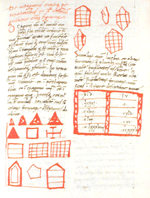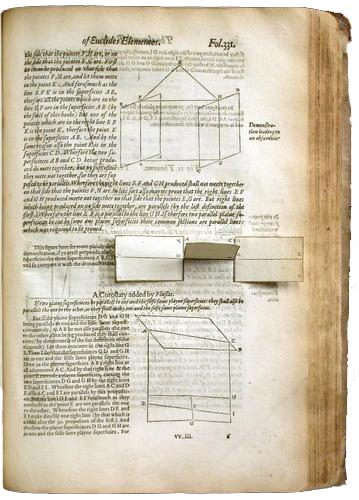Abundant and Deficient Numbers
home | courses | topics | theorems | starters | worksheets | timeline | KS3 | KS4 | KS5
There are infinitely many perfect numbers (see the proof that there are infinitely many primes) although they are few and far between ordinary numbers. So what are perfect numbers?
But what about those numbers that are not perfect? How can we call them? Well they are either abundant or deficient. If they are abundant, that means that the sum of their factors is more than their product (or the number itself). If they are deficient, their sum is smaller than their product.
So let us see - you have a number such as 6. Factors of 6 are 1, 2, and 3. Add them up
1+2+3=6, so we say 6 is perfect number.
Look at 12:
factors are 1, 2, 3, 4, 6
add them 1+2+3+4+6=16
There is more to 16 than to 12, so we say that 12 is an abundant number.
Look at 8:
factors are 1, 2, 4
add them 1+2+4=7
8 is deficient.
These numbers were first named as such by Nicomachus’ Introductio Arithmetica which was written about 100AD.
He wrote:
Among simple even numbers, some are superabundant, others are deficient: these two classes are as two extremes opposed to one another; as for those that occupy the middle position between the two, they are said to be perfect.
Nichomachus identified 6, 28, 496, and 8128 as perfect numbers.
This is a copy of Boethius’ work in philosophy which was written after Nicomachu’s Introductio Arithmetica (c.100AD). It is written in Latin, and was published in Italy c.1390.
See a page on perfect numbers here.
St. Augustine of Hippo (354-430) wrote:
"Six is a number perfect in itself, and not because God created the world in six days; rather the contrary is true. God created the world in six days because this number is perfect, and it would remain perfect, even if the work of the six days did not exist."
The famous Sir Henry Billingsley's translation of Euclid which appears on these pages, uses a term “perfect number”.
click on the image above to see the web page about this book.

It has been reported by H. Eves in his Mathematical Circles Squared (Boston 1972) that René Descartes said that
“Perfect numbers like perfect men are very rare.”
The same quote however comes in Samuel Jeake’s Arithmetic (1696) "Perfect Numbers are almost as rare as perfect Men”.
artefacts | numerals | concepts | people | places | pythagoreans | egyptians | babylonians
_____________________________________________________________________________________________________________________
Acknowledgements | Copyright | Contact | Mission Statement | Tell a friend about this site

